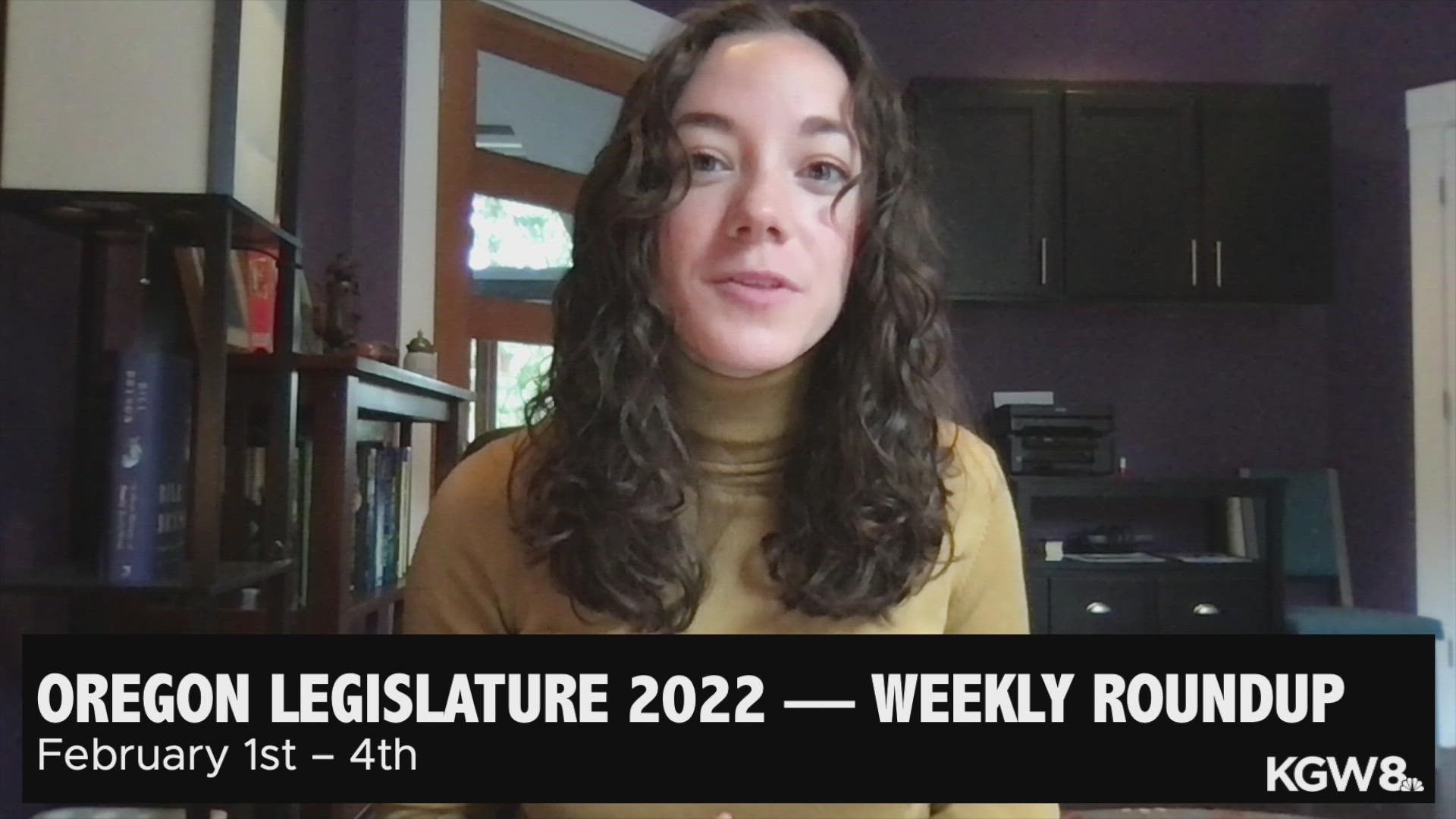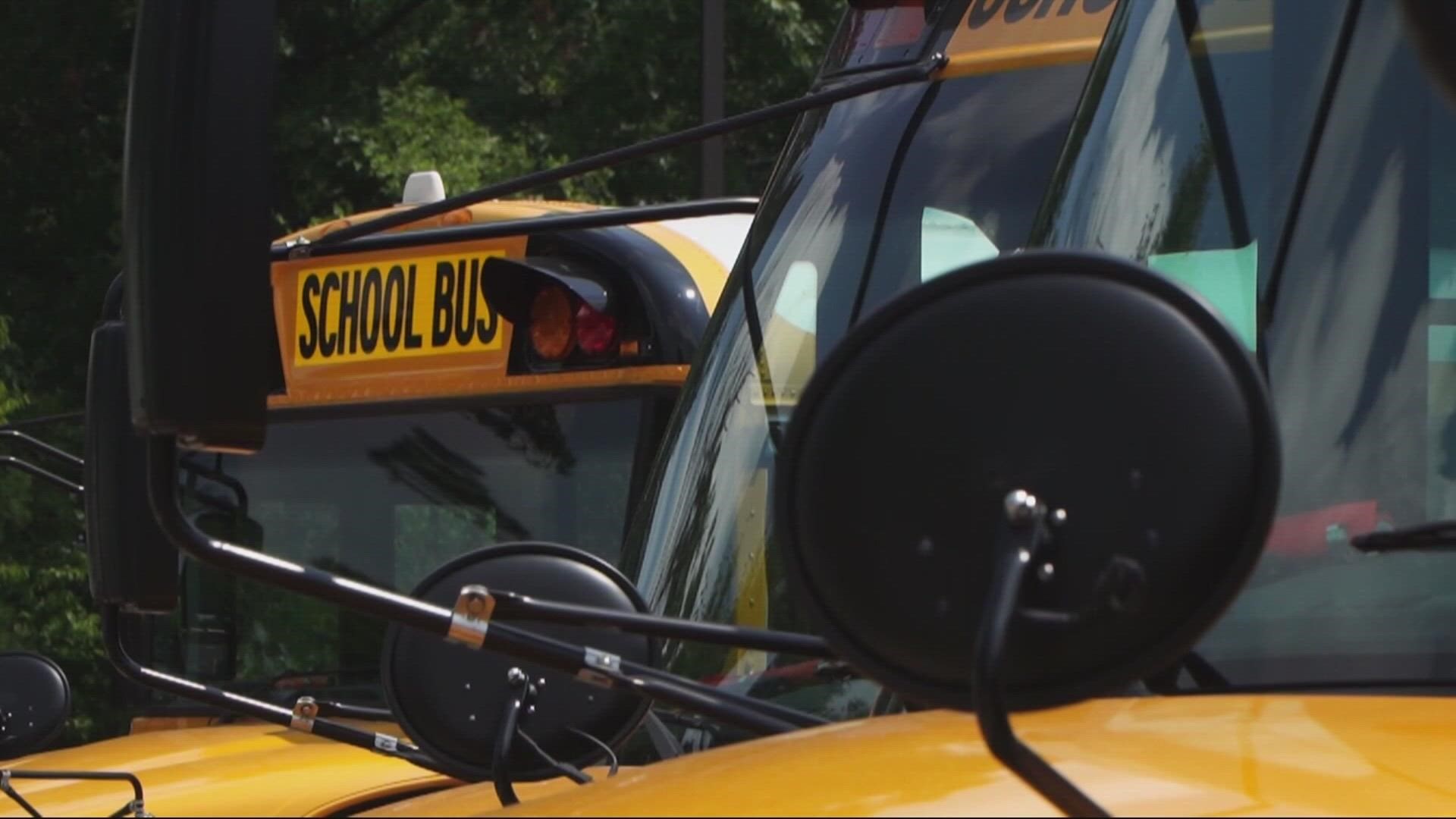SALEM, Ore. — Oregon's 35-day legislative session is underway, and lawmakers have a long list of issues to tackle, including ongoing COVID financial relief, criminal justice reform and expanding broadband access.
When the short sessions were approved in 2010, they were intended to be a contrast to the longer 160-day sessions and focus on resolving budgetary issues and fixing already-passed legislation.
The scope has since expanded considerably, with the Democratic-controlled chambers using the shorter sessions to address major policy issues. Republicans have complained about this shift, calling it government overreach.
This session, an influx of federal dollars and high state revenue forecasts mean lawmakers have a larger pool of money to spend than in most years. Democrats are looking to steer upwards of $1.5 billion toward key priorities.
New state leadership
The session began with significant change on Tuesday as the State House of Representatives elected a new speaker, Rep. Dan Rayfield, a Corvallis Democrat.
This marks the first time the speaker has been from outside Portland in nearly a decade. Rayfield is replacing Tina Kotek (D-Portland), who stepped down recently to focus on her bid for governor.
Democrats picked Rayfield over Rep. Janelle Bynum (D-Happy Valley), who would have been the first Black woman in the role. Although Bynum lost the Democratic nomination for the post a month ago, Rep. Jack Zika (R-Redmond) put her forward as a potential speaker Tuesday, and she received four votes.
Republicans nominated their caucus leader, Rep. Vikki Breese-Iverson (R-Prineville), who received 18 votes. Rayfield won the position with 32 votes.
This is just one of many sweeping leadership changes in Salem, as new House Majority and Minority leaders were also installed. Senator Peter Courtney, who has served the last 20 years as Senate president, has also announced this will be his last session.
“I believe that we are all here because we want to do good for Oregon,” Rayfield said on the House floor Tuesday. “It is important to me that we give the measure of grace that comes with recognizing that in all of us.”
Protesters rally at capitol
Also on the opening day of the session, approximately 100 protesters rallied outside the building against mask mandates and COVID vaccine requirements. The event was largely peaceful, though a handful of unmasked protesters eventually pushed their way into the capitol later that day.
These protests came as Republicans proposed bills to ban vaccine passports, terminate the existing Covid state of emergency and limit the governor’s executive powers.
These bills are unlikely to pass with a Democratic majority in power, but they do hold symbolic significance. Republicans are trying to make executive power a chief issue in the upcoming gubernatorial race, according to KGW political analyst, Len Bergstein.
“[This is] a place where the Republicans want to make their case,” Bernstein said. “They want to start the debate right now and try to rile up the base of their party about executive power since they probably guess they're not going to be the chief executive. But they want to make sure that their voters take a ... shot at this.”
Overtime pay, voting rights
In the past couple of years, tactics from Republicans such as walkouts or requiring full bill readings have halted sessions altogether. This year, both parties have said they want to avoid these interruptions, but some potentially controversial bills are on the table.
Democrats are continuing their push for overtime pay for agricultural workers. This bill comes amidst a heightened focus on essential workers during the pandemic and after the 2021 extreme summer heat wave that killed dozens of Oregonians.
Unlike other hourly workers, the Fair Labor Standard Act exempts agricultural workers from receiving time and a half for over forty hours of work per week.
Democrats aim to offset the economic burden on employers by gradually implementing the policy and granting tax credits. But, farm owners oppose this bill, saying the additional costs could harm their businesses.
Breese-Iverson, the House minority leader, has referred to this bill as “the elephant in the room” this session.
Another point of controversy could be the continuing effort to restore voting rights for adults in custody. If this bill passes, Oregon would join Maine and Vermont as the only states to allow these adults to vote.
This bill, which faces GOP opposition, comes as lawmakers nationwide are aiming to restrict voting rights. It’s also a part of the Democrats' larger push for criminal justice reform, in the wake of George Floyd’s murder.
Broadband access, self-service gas
Some efforts do have the potential to bring unity across the aisle in Salem.
This includes a proposal from the governor to invest $200 million to grow the state’s workforce in the health care, manufacturing and construction sectors. Funds would go towards community college and apprenticeship programs, and cover the costs of tuition, transportation, childcare and more for especially hard-hit Oregonians.
Governor Kate Brown said this initiative will prioritize populations disproportionately impacted by the pandemic and existing workplace disparities. This includes people of color, people with low incomes and those living in rural communities, among others.
“Even today, in the middle of Oregon’s strong economic recovery, the doors of opportunity remain closed for too many families,” Brown said in her final State of the State address Thursday. “But, the truth is, here in lies an opportunity to connect Oregon’s people to Oregon’s jobs.”
Brown is also calling for a $100 million investment in child care aid and $400 million for affordable housing.
Another bill that could bring together lawmakers from across the aisle is a policy to expand the state’s broadband access, an issue highlighted throughout the pandemic as many struggled to learn or work from home in rural communities across the state.
An estimated $200 million in federal funds would go towards expanding this access.
And another bipartisan push may finally give Oregonians the option to pump their own gas. If passed, gas stations would still be required to staff half the pumps.
Other topics this session with proposed legislation include emergency heat wave relief, fuel disaster prevention, payments to essential workers, limits on firing superintendents, police practices when stopping drivers, crackdowns on illegal cannabis and state gaming laws.
There are currently over 260 bills, and only a handful are likely to reach the finish line. Lawmakers are currently holding public hearings and will start moving bills to the floor the week of February 7.
Any bill that doesn’t have a work session scheduled by Feb. 7 is dead, as is any bill not passed out of its chamber of origin by Feb. 14. This doesn’t apply to bills in several committees, such as the Revenue and Rules committees, where lawmakers may send bills to extend their life or use as bargaining chips later in the session.
Oregonians can visit the Oregon Legislature Information System to follow bills, watch public hearings and submit testimonies.


